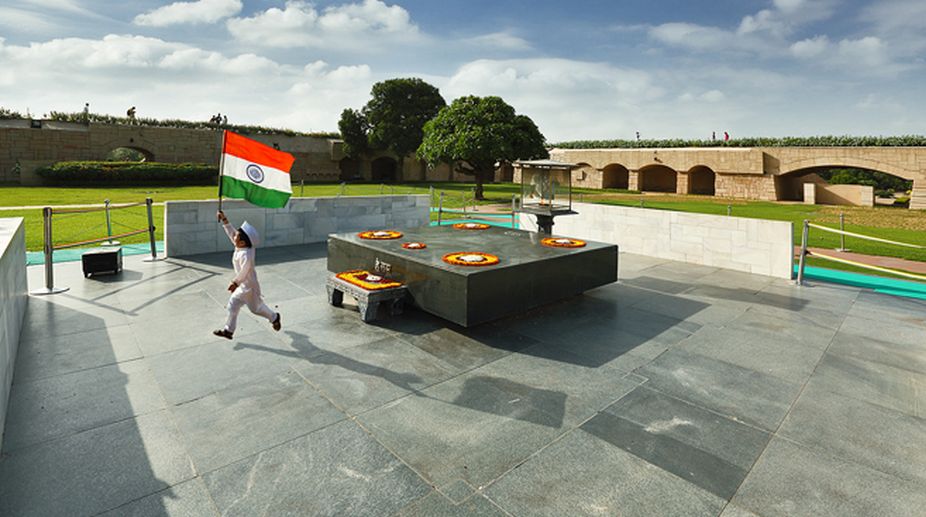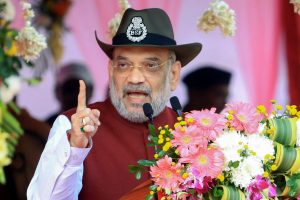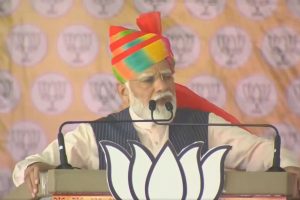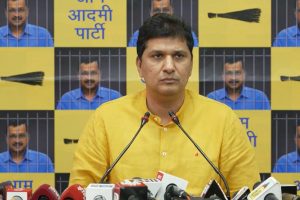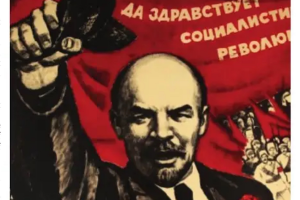The uppermost thought on 30 January this year, the 69th death anniversary of Mahatma Gandhi, was that the 79-year-old man, whose heart bled at the sight of misery, had bled to death on January 30, 1948 after three bullets were fired at point-blank range by a certain Nathuram Godse. The Mahatma had gone the way of all saints. India had lost its soul but his spirit shall live as long as the country survives. Three days after the assassination, Prime Minister Jawaharlal Nehru told the Constituent Assembly: “The only way to pay homage is to express our determination, to pledge ourselves anew, to conduct ourselves in a befitting manner and to dedicate ourselves to the great task which he undertook and which he accomplished to such a large extent. So we have to work, we have to labour, we have to sacrifice and thus prove, to some extent at least, worthy followers of his.’
Gandhi undertook the task to rejuvenate villages. He said; “The soul of real India lives in its villages.” He romanticised village life as self-sufficient, simple, free, non-violent, and truthful. On the contrary, Nehru’s vision relied heavily on industrialisation and creation of material prosperity. In his reckoning, the city was the conduit for trading. Shortly before independence, Mahatma wrote to Nehru to share his vision of a free India. Nehru was non-committal and their discussion remained inconclusive owing to the rapid political changes and the outbreak of communal violence.
Soon after Independence, Gandhi was heart-broken in the face of rampant corruption and favouritism indulged in by Congress ministers at the Centre and in the States. On January 29, 1949, he drafted a constitution for the Congress, famously known as ‘His Last Will and Testament’, and delivered the same next morning — the day of the assassination — to the Secretary of the Indian National Congress. In the Will, he advised the Congress to go into voluntary liquidation as a political party and to form an association for the service of the people (Lok Sevak Sangh) and rush to the village units so that they control national policy and put in place a non-violent society. But before the date of the proposed meeting at Wardha he was assassinated. The All-India Congress Committee did not accept his proposal.
The Indian economy was mired in stagnation through centuries of colonial rule. However, in spite of the grim beginning, independent India could claim significant political and economic successes. During the last two decades, the economy has done well in terms of GDP and has earned the reputation of being second to China in terms of economic growth. Though India has climbed rapidly up the ladder of growth rates, it has fallen relatively behind in the scale of social indicators of living standards. The existing systems of economic growth are already showing signs of strain not least because of climate change and environmental damage. Gandhi’s message for the modern man was that the ‘Earth provides enough to satisfy man’s need, but not for every man’s greed.’
Gram Swaraj envisaged every village as a republic to ensure the greatest good of all. If his idea of Gram Swaraj is applied to the world at large with his theory of antyodaya or ‘the last man’ — which speaks of providing every individual with the basic necessities — it can negate the effects of globalisation by ensuring the benefits of development to every citizen.
Gandhi’s greatest legacy was that he made India fearless. He taught Indians to live and die fearlessly. He had raised his quiet and determined voice against the overwhelming sense of fear. As he said: “That nation will be great which sheds fear and uses death as its pillow.” When he was in Champaran to enquire into the hardship of peasants, he was told that “the planter of this place is the worst of the lot. He is bent on murdering you. He has engaged some men to kill you.” .
In response, he went to the planter’s bungalow and told him: ‘I hear that you have engaged men to do away with me. That is why I have come alone and in secret to your house.”
Gandhi was the prophet of non-violence. Since his assassination, his conviction in non-violence has been validated on many occasions — in the civil rights movement of the US, during the Tibetan people’s movement under the leadership of the Dalai Lama, in the struggle against apartheid in South Africa, by the solidarity movement in Poland in the 1980s, and, more recently, by pro-democracy protesters across the world. His message of non-violence still rings a bell of sincerity and hope. Arguably in the face of today’s terrorism, he would have involved social institutions as well as individual beliefs and commitments. In his reckoning “you cannot defeat nastiness, including violent nastiness, unless you yourself shun similar nastiness altogether”.
Independent India has demonstrated how democracy can flourish despite a multiplicity of languages, religions and ethnicities. But India, like other democratic countries around the world, is yet to achieve democracy in the fullest sense of the term — “government of the people, by the people, for the people”. Despite many laws, the electoral process is becoming less and less honest and more and more criminalised.
Indeed, Gandhi’s uniqueness does not lie in the fact that he was extraordinary but his in being extraordinarily ordinary. As the pyre was lit and Gandhi’s frail body consigned to flames, someone from the mourning millions exclaimed: ‘Now he belongs to the ages.’ If humanity is to progress, Gandhi cannot be ignored. Let us be inspired by his views and practices. In the words of Gopalkrishna Gandhi, the Mahatma’s grandson: “Gandhi has done more than what one man can do in his lifetime. What we need is not a modern Gandhi but the inner power that he wanted to see in us to do what is right for us today.”
The writer is a retired IAS officer.

